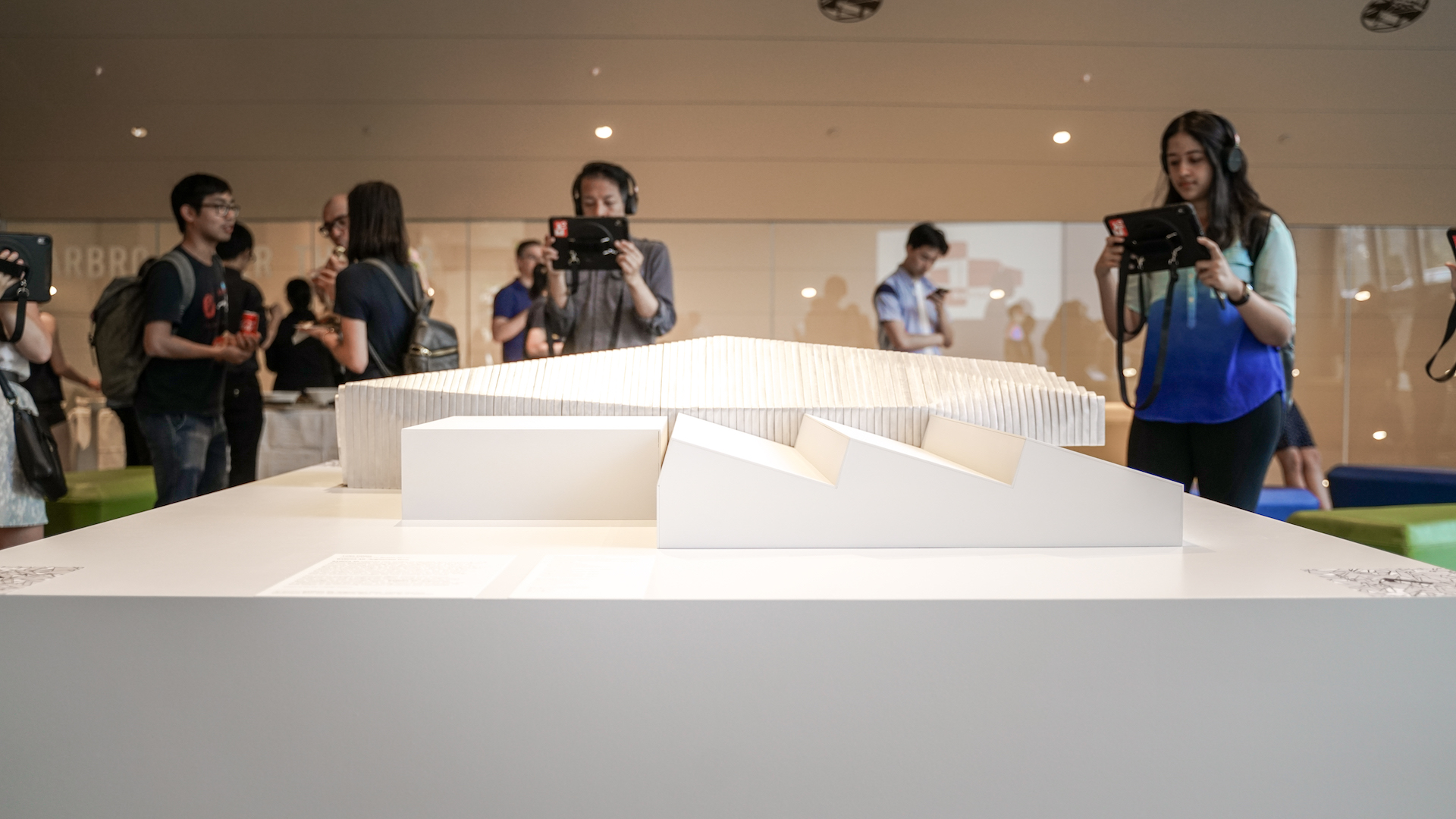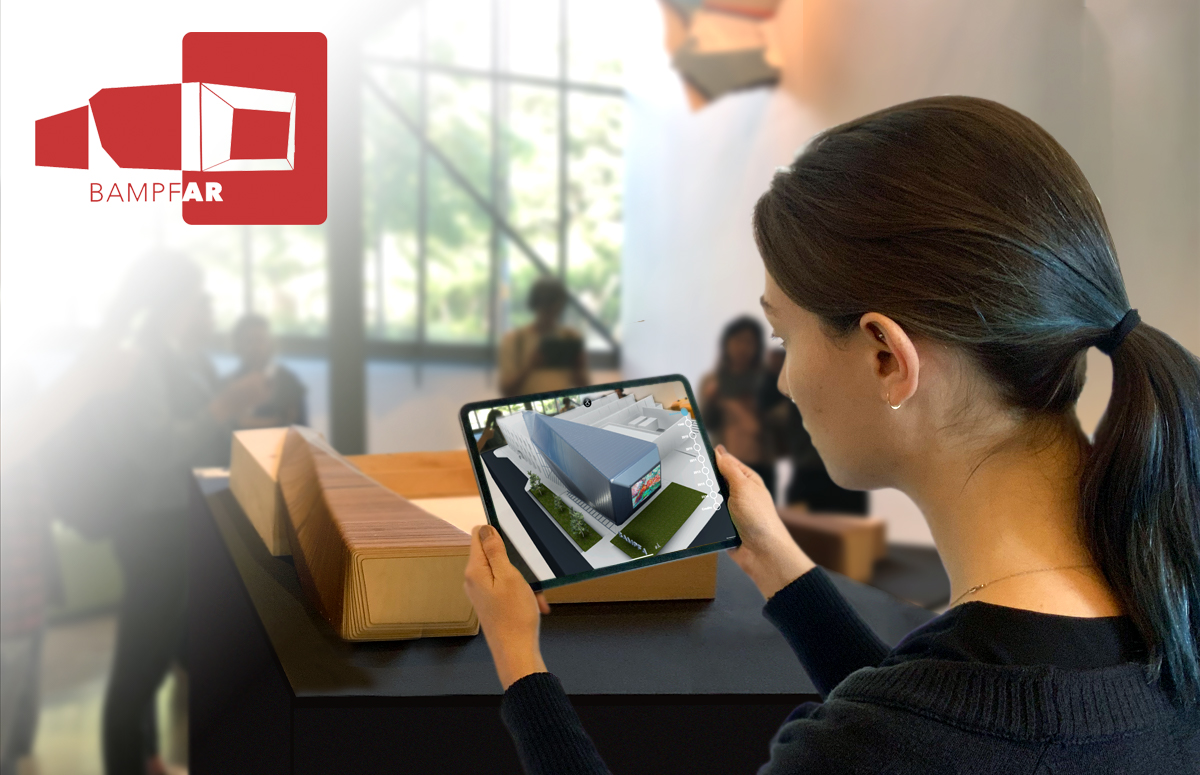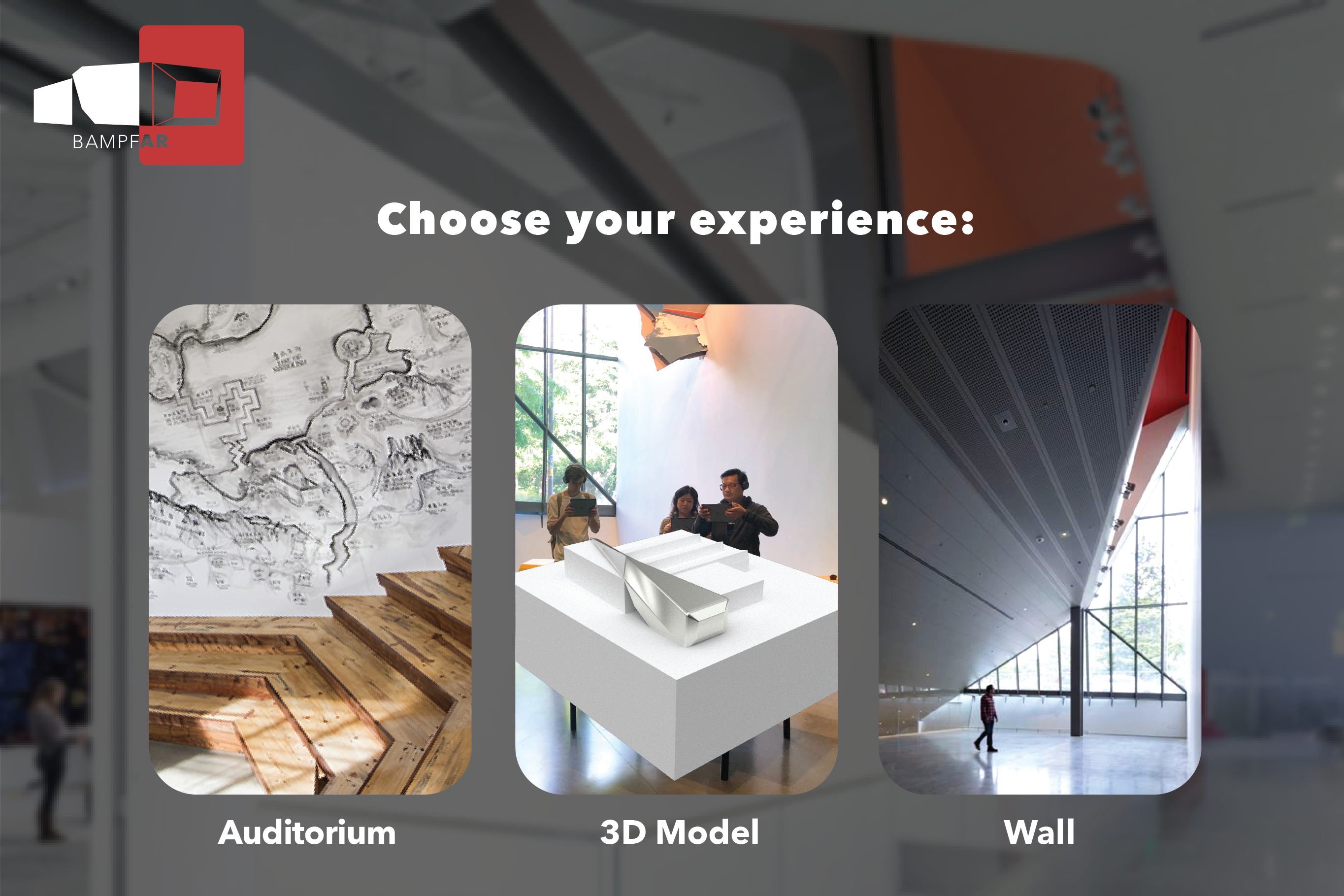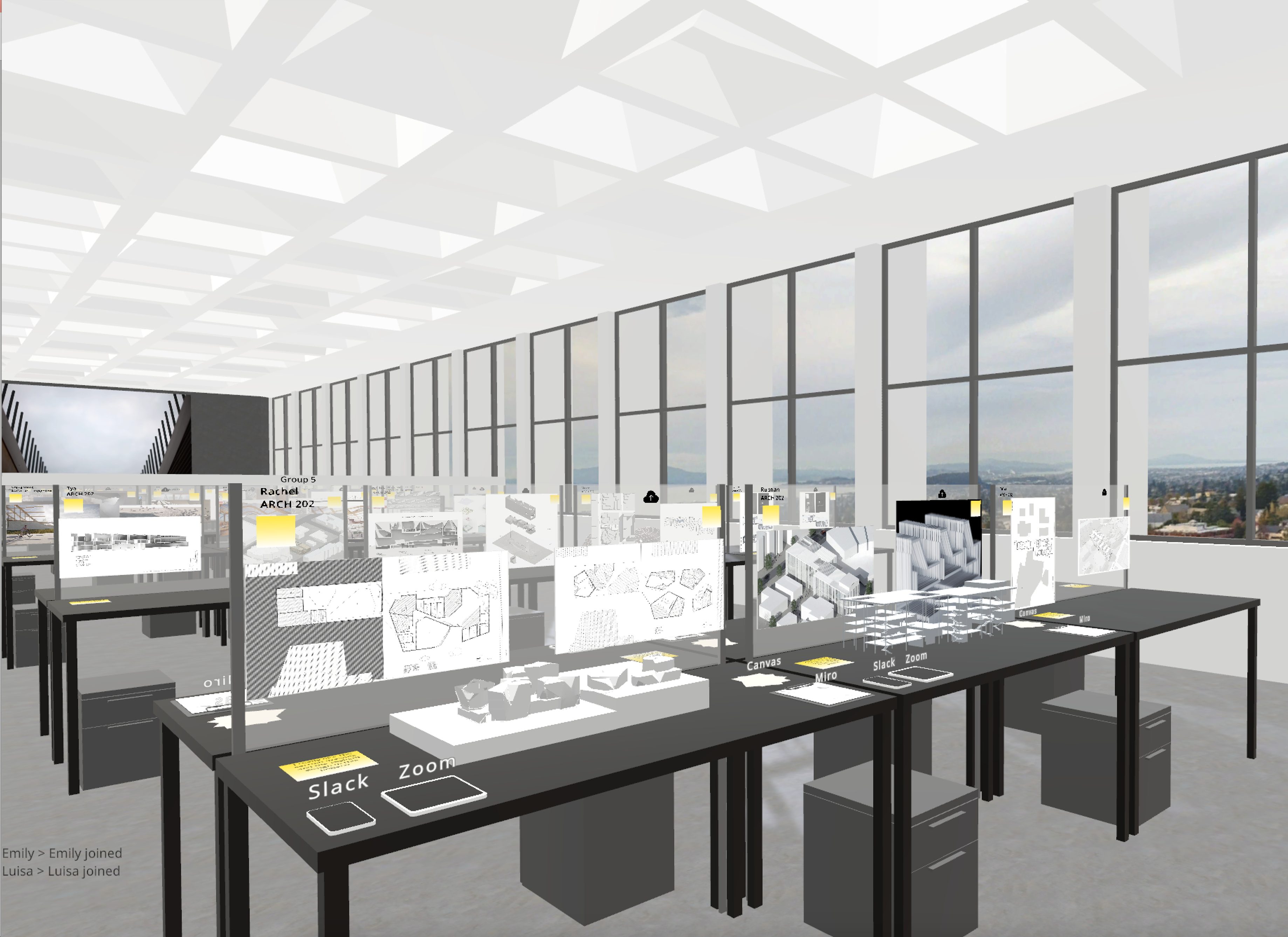
SPECIALIZATIONS
Immersive environment; virtual and augmented reality for building design and simulation; net zero energy and sustainable design; parametric and generative design systems for sustainable architecture; daylighting in buildings.
BIOGRAPHY
Luisa Caldas is an architect, educator, sustainability consultant, and creator of virtual immersive experiences. Caldas is Professor of Architecture at University of California and is the founder and director of the UC Berkeley XR Lab, a research laboratory for virtual, augmented and mixed reality created in 2017. She is a Faculty Scientist in the Energy Technologies Area of Lawrence Berkeley National Laboratory, a member of the FHL VIVE Center for Enhanced Reality and of the executive committee of the Berkeley Center for New Media.
Caldas holds a PhD from MIT in Architecture and Building Technology, where her pioneering work in application of Artificial Intelligence to the design of sustainable buildings helped to lay the foundations for the booming field of sustainable generative design. She earned her professional architecture degree at the Faculty of Architecture of the University of Lisbon, and a MSc degree from the Bartlett Graduate School, UCL, University of London.
Caldas has taught or been a visiting scholar at MIT, Tokyo Institute of Technology, School of Engineering of the Technical University of Lisbon (IST), Universidade do Minho, ISCTE/Instituto Universitario de Lisboa, Pontificia Universidad Catolica de Chile, and Universidad Frederico Santa Maria. Prior to moving to Berkeley in 2012, Caldas was full Professor at the Faculty of Architecture of the University of Lisbon, where she was vice-president of the Scientific Council and inaugural director of Sustenta Lab.
As licenced architect, her professional practice focuses on single-family housing projects and commercial projects. She worked as an architect with Frederico George in Lisbon, and with Richard MacCormak in London, among other offices. In addition, Caldas was a partner at SoftEnergies, a sustainability consultancy company.
COURSES TAUGHT
ARCH 240: Advanced Topics in Energy and Environment, SP 2015-2025
ARCH 203: Integrated Design Studio, FA 2015-2024
ARCH 245 - Daylighting in Architecture, SP 2022, 2025
ARCH 202 Graduate Studio: Crafting Light (with Raveevarn Choksombatchai), SP 2020, 2022
ARCH 229: Space and Media
ARCH 249: Building Narratives in Virtual Environments
Arch 129/229: XR Maps of Berkeley: Learning in Virtual Reality
ARCH 249: Physical . Digital . Virtual . SP 2017, 2018
ARCH 249: The Fabric of Space and Light, SP 2016
ARCH 249: Evolving Skins: Materials, Energy and Light, Spring 2014
ARCH 249: Light as Form Generator, Spring 2013
ARCH 249: Integrated Tools for Sustainable Design, FA 2013
Publications
XR Lab Project Highlights
Virtual Bauer Wurster, Digital Twin of the School of Architecture of UC Berkeley
2021–present
-
- Berkeley News, “Missing in-person interaction, Berkeley’s design school launches virtual reality building,” March 25, 2021.
-
- Daily Californian, Virtual reality project provides online space for architecture students"March 20, 2021.
-
- Daily Californian, “The sense of presence: Virtual spaces during the pandemic and beyond,” April 2021.
-
- Archinect, February 2021.
Application of virtual reality and biometrics to the design of healthcare facilities
Since 2019, with Haripriya Sathyanarayanan
-
- Health Tech World, “Kids are helping design a hospital through the power of VR”
-
- Scripps News TV, “Kids are using virtual reality to design their own hospital rooms”
Architects Newspaper, “Luisa Caldas uses AR to let DS+R's BAMPFA tell its own story,” January 28, 2020.
The Plan Magazine, The Story Behind BAMPFA AR, “Augmented Time.”
Daily Californian, “UC Berkeley professor Luisa Caldas uses augmented reality to reveal untold history, unheard voices at BAMPFA,” December 12, 2019.
JTBC Television, South Korea, Interview with Luisa Caldas on Virtual Bauer Wurster and BAMPFA AR, September 2021.
Publications
Zhuang X., Ju Y., Yang, A. and Caldas L., 2023, Synthesis and Generation for 3D Architecture Volume with Generative Modelling. International Journal of Architecture Computing, Special volume, AI, Architecture, Accessibility, & Data Justice, April 2023. DOI: 10.1177/14780771231168233
Sathyanarayanan, H., Caldas, L., 2023, Co-Designing with Children: Innovating Patient Engagement and Participation in Pediatric Healthcare Design Research with Immersive Technology and Affective Interactions. Academy Journal No.24, August 2023, Academy of Architecture for Health, American Institute of Architects
Bailey, E., Caldas, L., 2023, Operative Generative Design Using Non-Dominated Sorting Genetic Algorithm (NSGA-II), 155(4), July 2023, Automation in Construction, Elsevier. DOI: 10.1016/j.autcon.2023.105026
Zani, A.; Speroni, A.; Mainini, A.; Zinzi, M.; Caldas, L.; Poli, T., 2023, Customized shading solutions for complex building façades: the potential of an innovative cement-textile composite material through a performance-based generative design, Construction Innovation: Information, Process, Management, Vol. 23, Emerald, DOI 10.1108/CI-01-2023-0014
Sathyanarayanan, H., Caldas, L., 2023, Patient-Centered Design in Pediatric Healthcare Buildings Using Immersive Virtual Environments, 7th Annual Virtual Reality and Healthcare Global Symposium, University of Pennsylvania School of Medicine, Philadelphia, March 3-5, 2023
Zhuang X. and Caldas L., 2022, Prediction of Ventilation Performance in Urban Area with CFD Simulation and Conditional Generative Adversarial Networks. Proceedings of 5th International Conference on Building Energy and Environment, Montreal, Canada, January 2022
Keshavarzi, M., Afolabi, O., Caldas, L., A.Y. Yang. A Zakhor, 2021, "GenScan: A Generative Method for Populating Parametric 3D Scan Datasets", Proceedings of CAADRIA ’21, March 2021, Hong Kong
Keshavarzi, M., Caldas, L., Santos, L., 2021, "RadVR: A 6DOF Virtual Reality Daylighting Analysis Tool." Automation in Construction 125(4) DOI:10.1016/j.autcon.2021.103623
Stals, A., Caldas, L., 2020, “State of XR research in architecture with a focus on professional practice - A systematic literature review”, Architectural Science Review, Nov. 2020
Santos, L., Caldas, L., 2020. “Assessing the Glare Potential of Side-lit Indoor Spaces: A simulation-based approach”. Architectural Science Review, 16 June 2020
Keshavarzi, M., Yang, A., Ko, W., Caldas, L., 2020, “Optimization and Manipulation of Contextual Mutual Spaces for Multi-User Virtual and Augmented Reality Interaction.” Proceedings of the 2020 IEEE Conference on Virtual Reality and 3D User Interfaces, pp. 353-362
Taube, B., Green, V., Santos, L., Caldas, L., 2020, “Using Machine Learning to Predict the Daylight Performance of Top-lighting Strategies”. Accepted for publication on Proceedings of 35th PLEA Conference: Planning Post Carbon Cities, 1-3 September 2020, A Coruña, Spain
Keshavarzi, M., Parikh, A., Zhai, X., Mao, M., Caldas, L., Yang, A., 2020, “SceneGen: Automated Scene Augmentation using Scene Graph Priors”, 2020
Santos, L., Schleicher, S., Caldas, L., 2019, “Automatic Simplification of Complex Building Geometry for Whole-building Energy Simulations”. Proceedings of 16th IBPSA International Conference on Building Simulation 2019, Rome, Italy, pp. 2691-2698.
Caldas, L, Keshavarzi, M., 2019, "Design Immersion and Virtual Presence." TAD: Technology | Architecture + Design 3, no. 2 (2019): 249-251.
Santos, L., Leitão, A., Caldas, L., 2018, "A Comparison of Two Light-Redirecting Fenestration Systems Using a Modified Modelling Technique for Radiance 3-Phase Method Simulations," Solar Energy, Feb 2018, Vol. 161, pp. 47-63
Caldas, L., Andaloro, A., Calafiore, G., Munechika, K., Cabrini, S., 2018, "Water Harvesting from Fog using Building Envelopes - Part 1," Water and Environment Journal, November 2018, Vol 32, Issue 4, pp. 493-499.
Caldas, L., Andaloro, A., Calafiore, G., Munechika, K., Taube, B., Oliveira, M., Cabrini, S., 2018, Water Harvesting from Fog using Building Envelopes - Part 2, Water and Environment Journal, August 2018, Vol 32, Issue 3, pp. 466-475.
L. Santos, L. Caldas, 2018, “Assessing the Glare Potential of Complex Fenestration Systems: A Heuristic Approach Based on Spatial and Time Sampling”, PLEA 2018, Hong Kong, December 10-12, 2018, vol.1 pp. 446-451. (Merit Award)
Schleicher, S., Santos, L., Caldas, L., 2018. “Data-driven shading systems - Application for freeform glass facades”, in: Facade Tectonics World Congress. Beyond the Dialogue. SKINS on Campus: Bridging industry and academia in pursuit of better buildings and urban habitat, Los Angeles, vol. 1, pp. 3-14.
Santos, L., Schleicher, S., Caldas, L., 2017, Automation of CAD Models to BEM Models for Performance Based Goal-oriented Design Methods, Building and Environment, Vol. 112, pp. 144-158. DOI: 10.1016/j.buildenv.2016.10.015
Caldas, L., Santos, L., 2016, Painting with Light: an Interactive Evolutionary System for Daylighting Design, Building and Environment, Vol. 109, pp. 154-174
Caldas, Luisa, Yasuda, Koichi, Kawashima, Norihisa, 2017, Invitational Program for Faculty from the World’s Leading Universities: UC Berkeley 2017, Department of Architecture and Building Engineering, Graduate School of Science and Engineering, Tokyo Institute of Technology
Wang, J., Caldas, L., Hou, L., Song, Y., 2016, “Simulation-Based Optimization of Window Properties Based on Existing Products”, Proceedings of BSO’16, International Conference on Building Simulation & Optimization 2016, Newcastle, UK, Sep 12-14 2016, pp. 1054-1079
Caldas, L., Santos, L., 2016, “Painting with Light: A Generative Design System for Daylighting Design”, proceedings of PLEA 2016, International Conference on Passive and Low Energy Architecture: Cities, Buildings, People: Towards Regenerative Environments, Los Angeles, July 11-13, 2016, pp. 634-639
Caldas, L., Stavridi, E., 2016, “Light as Form Generator: Workflows for Performance-Based Generative Design”, Facade Tectonics 2016 World Congress, Los Angeles, October 10-11, 2016, pp. 345-358
Wang, J., Caldas, L., Chakraborty, D., Huo, L., 2016, “Selection of Energy Efficient Windows for Hot Climates Using Genetic Algorithms Optimization”, Proceedings of PLEA 2016, Los Angeles, July 11-13, 2016, pp. 29-34
Song, Y., Wang, J., Caldas, L., Zhu, N., Lin, Z., 2014, Indoor Comfort and Energy Saving Building Performance Created by Envelope Materials, Time + Architecture, 2014 (3), pp. 77-81
Caldas, L., Santos, L., 2012, "Generation of Energy-Efficient Patio Houses with GENE_ARCH: combining an Evolutionary Generative Design System with a Shape Grammar" in: 30th eCAADe Conference Proceedings: Digital Physicality/Physical Digitality, Prague, Check Republic, volume 1, pp. 459-470
Caldas, L., 2011: Good Practice Manual for Energy and Water Conservation in Court Houses, Institute for Infra-Structures and Financial Management of Justice, Ministry of Justice, Portugal.
Caldas, L., 2011: “Generation of Energy-Efficient Patio Houses: Combining GENE_ARCH and a Shape Grammar”, AAAI Spring Symposium Series (Association for the Advancement of Artificial Intelligence): Artificial Intelligence and Sustainable Design, Stanford University, pp.10-18
N. C. Pereira, L Caldas, M. C. Guedes, L. Gliksman, 2010: “Energy-Efficient Retrofit of Buildings in Lisbon – Pombalino Typology case-study”, in Proceedings of CINCOS 2010, Curia, Portugal, 21-23 October 2010
Caldas, L., 2008: Generation of Energy-Efficient Architecture Solutions Applying GENE_ARCH: An Evolution-Based Generative Design System", in Advanced Engineering Informatics, Vol. 22 (1), pp. 59-70, Elsevier
Caldas, L., 2006: GENE_ARCH: An Evolution-Based Generative Design System for Sustainable Architecture, in Lecture Notes in Artificial Intelligence, Lecture Notes in Computer Science Series, I.F.C. Smith (Ed.): EG-ICE, LNAI 4200, pp. 109-118, Springer-Verlag Berlin Heidelberg
L. Caldas, 2006: “GENE_ARCH: An Evolution-Based Generative Design System for Sustainable Architecture”, 13th Workshop on Intelligent Computing in Engineering and Architecture, Monte Veritá, Ascona, Switzerland, 25-20 June 2006
Duarte, J.P., Rocha, J., Ducla-Soares, G., Caldas, L., 2006: “An Urban Grammar for the Medina of Marrakech”, in Gero, J. (ed.), Proceedings of the 2nd International Conference on Design Computing and Cognition, Eindhoven, The Netherlands, July 2006, pp 483-502, Springer, The Netherlands.
Caldas, M., Caldas, L. e Semião, V., 2006: Multicriteria Optimization of Gasification Operational Parameters Using a Pareto Genetic Algorithm, Journal of Systemics, Cybernetics and Informatics, Vol. 3, nº 2, pp.69-74
Caldas, L., 2005: “Three-Dimensional Shape Generation of Low-Energy Architecture Solutions using Pareto Genetic Algorithms”, Proceedings of ECAADE’05, September 21-24, Lisbon, Portugal
Caldas, L., Duarte, J., 2005: “Fabricating Innovative Ceramic Covers: Re-Thinking Roof Tiles in a Contemporary Context”, Proceedings of ECAADE’05, September 21-24, Lisbon, Portugal
Rocha, J. , Caldas, L., 2005: Interfaces Arquitectura | Engenharia: A invenção do problema e a criação de novos pressupostos tecnológicos, in: Momentos de Inovação e Engenharia em Portugal no século XX, ed. by Heitor, M., Brito, J.M.B., e Rolo, M.F., (Lisboa: Publicações D. Quixote, 2005)
Caldas, L.G., e Oliveira, M.D., 2005: “Body, Intelligence and the Divinely Artificial”, Proceedings of the Conference ‘Discourses of the Body: Biology, Consciousness, Construction’, in Redes, Vol. I, N. I, Center of European and German Studies, University of Lisbon Press, 2004
Caldas, L., Norford, L., 2004: Shape Generation Using Pareto Genetic Algorithms: Integrating Conflicting Design Objectives in Low-Energy Architecture, International Journal of Architectural Computing, Vol. 1, N.4, pp. 503-515
Duarte, J.P, Caldas, L.G., Rocha, J.M., 2004: “Free-Form Ceramics: Design and Production of Complex Forms with Ceramic Elements”, Proceedings of ECAADE’04, September 15-18, Copenhagen, Denmark, pp. 174-183.
Caldas, M., Caldas, L., Semião, V., 2004: “Multi-criteria optimization of Gasification Parameters using Pareto Genetic Algorithms”, Proceedings of the 8th World Multiconference on Systemics, Cybernetics and Informatics (SCI 2004), Orlando, USA, July 18-21, 2004
Caldas, M., Caldas, L., Semião, V., 2004: “Genetic Algorithms Applied to the Optimization of a Gasification for a Given Fuel”, Proceedings of ICINCO2004, August 2004, Setúbal, Portugal
Caldas, L.G., e Oliveira, M.D., 2004: The Body and the City: Organic and Functional Complexities, in: Circulation, ed. by Alves, M.V., (Lisbon: Museum of Medicine, Faculty of Medicine of the University of Lisbon, 2004), pp. 292-301
Caldas, L., Duarte, J., 2004: Proceedings of Workshop ‘Implementation Issues in Generative Design Systems’, Design Computing and Cognition ’04 International Conference, MIT, Cambridge, USA, 19-21 July 2004
Caldas, L.G., Norford, L.K., 2003: Genetic Algorithms for Optimization of Building Envelopes and the Design and Control of HVAC Systems, Journal of Solar Engineering – Transactions of the ASME, August 2003, Volume 125, Number 3, pp. 343-351
Caldas, L., Norford, L., Rocha, J., 2003: An Evolutionary Model for Sustainable Design, Management of Environmental Quality: An International Journal, Volume 14, Number 3, pp. 383-397
Caldas, L., 2003: “Shape Generation Using Pareto Genetic Algorithms: Integrating Conflicting Design Objectives in Low-Energy Architecture”, Proceedings of CAADRIA 2003, October 18-21, Bangkok, Thailand
Caldas, L., Rocha, J., 2002: A Generative Design System Applied to Siza’s School of Architecture at Oporto, The International Journal of Design Computing, 2000-2001, Vol.3
Caldas, L.G., Norford, L.K., 2002: Energy Design Optimization Using a Genetic Algorithm, Automation in Construction, Elsevier, Volume 11, Number 2, pp. 173-184
Caldas, L., 2002: Pareto Genetic Algorithms in Architecture Design: An Application to Multicriteria Optimization Problems. Proceedings of PLEA’02 (The 19th Conference on Passive and Low Energy Architecture), Toulouse, France, July 2002, pp.37-45
Caldas, L., Norford, L., Rocha, J., 2001: An Evolutionary Model for Sustainable Design, Proceedings of PLEA'01, Florianópolis, Brazil, November 7-9 [Best Paper Award]
Caldas, L., Norford, L., 2001: Architectural Design Constraints in a Generative Design System: Interpreting Energy Levels, Proceedings of Building Simulation 2001, Rio de Janeiro, Brazil, August 13-15, Vol. 2, pp. 1397-1404
Caldas, L., Rocha, J., 2001: A Generative Design System Applied to Siza’s School of Architecture at Oporto, Proceedings of CAADRIA’01, Sydney, Australia, April 19-21, pp. 253-264 [Commended Paper Award]
Caldas, L.G., Norford, L.K., 1999: A Genetic Algorithm Tool for Design Optimization, Proceedings of ACADIA ’99, Salt Lake City, October 28-31, USA, pp. 260-271
Norford, L., Caldas, L., Kaufman, J., Glicksman, L., Scott, A., Chen, Q., 1999: Opportunities to Maintain Thermal Comfort in Beijing Housing without Vapor Compression Cooling Equipment, Proceedings of the Third International Symposium in Heating, Ventilation and Air Conditioning [ISHVAC ‘99], Vol. 1, pp. 226-236, November 17-19, ShenZhen, China
Patents / IP
2021 U.S. Provisional Patent Application No. 63/114,906, Title: SYSTEMS AND METHODS FOR INTEGRATING USER FEEDBACK AND EYE TRACKING IN GENERATIVE DESIGNS, Ref. BK-2020-067-1-US
2021 InsightXR: Integration of user feedback and eye tracking in generative design, Invention Disclosure (Software), Case Number 2021-067, Elnaz Bailey, Luisa Caldas
2021 REMOTE COLLABORATION PLATFORM FOR INTERACTIONS IN VIRTUAL ENVIRONMENTS
International Patent Application No. PCT/US2021/051330, September 21, 2021
2020 CONTEXTUAL AUGMENTATION USING SCENE GRAPHS, Provisional Patent Application 63/043,904 filed June 25, 2020 -UC Ref. BK-2020-156-1; MN Ref. 407869-0095, UC Berkeley, Keshavarzi, M., Caldas, L., Yang, A., Parikh, A.
2019 SEARCH AND RECOMMENDATION PROCESS FOR IDENTIFYING USEFUL BOUNDARIES IN VIRTUAL COMMUNICATION SETTINGS, International Patent No. 62/913,938, Keshavarzi, M., Caldas, L.
2019 VR SCOPE: CONFIGURABLE ACCESSIBILITY VIRTUAL REALITY PLUGIN, Software Licensing Agreement, Case B20-036, Office of Technology Licensing, UC Berkeley, Caldas, L., Tsiara, K., Makker, T.
2004
DISCONTINUOUS SYSTEM FOR COVERING ROOFS AND FACADES WITH COPLANAR CERAMIC ELEMENTS. National Patent, Portugal, PT103137: Authors: D. Mateus, J. Peres, R. Ribeiro, J. Duarte, L. Caldas
ROOF COATING SYSTEM IN DISCONTINUOUS CERAMIC GLAZED ELEMENTS. National Patent, Portugal, PT103141: Authors: M. Parrinha, P. Moreno, D. Bernal, J. Duarte, L. Caldas
BUILDING COVERAGE SYSTEM IN CERAMIC MATERIAL. National Patent, Portugal, PT103140: Authors: J. Cadaval Rocha, A. Moreira, K. Alves, J. Duarte, L. Caldas
CIRCULAR DISCONTINUOUS CERAMIC COATING OF CIRCULAR SHAPE. National Patent, Portugal, PT103139: Authors: B. Maltez, M. Manso, N. Marques, J. Duarte, L. Caldas
DOUBLE-FACED BUILDING COVERAGE SYSTEM. National Patent, Portugal, PT103138: Authors: M. Pacheco, A. Coelho, A. Damásio, J. Duarte, L. Caldas
2003
CERAMIC BRICKS GENERATORS OF FREESTANDING WALLS WITH COMPLEX DOUBLE-CURVATURE SHAPES. National Patent, Portugal, PT103020: Authors: C. Passos, T. Ribeiro, J. Duarte, L. Caldas
ROTATING CERAMIC TILE. National Patent, Portugal, PT103019: Authors: S. Preto, M. Novak, J. Duarte, L. Caldas



